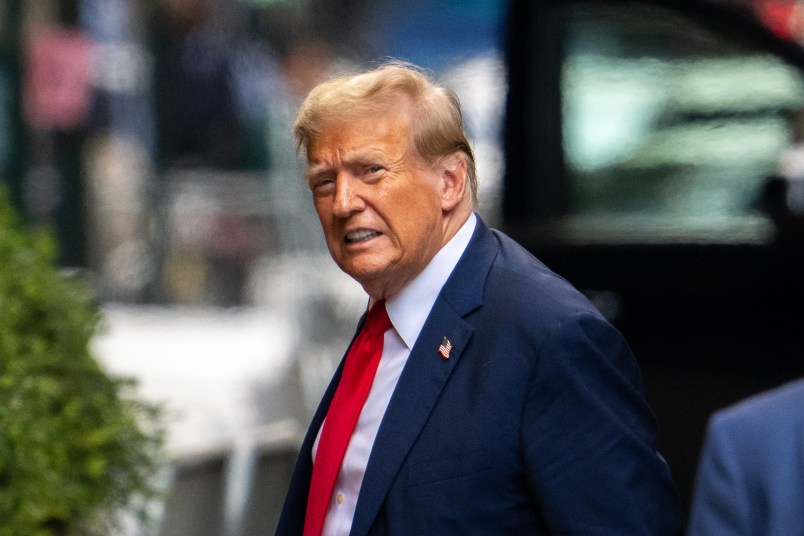NEW YORK — After the morning arguments, we landed at what will likely be the meat of the coming days and, possibly, weeks: jury selection.
Hundreds of jurors have been called to serve as a pool for the trial. I and the other journalists report from an overflow room which is connected to the main courtroom via a video feed, as batches of 96 jurors cycle in and out of the main room.
That first group of 96 arrived in the courtroom on Monday afternoon. They were immediately asked whether any of them were unable to be fair or impartial in rendering judgement in the case — if the answer was yes, then they were immediately dismissed.
This struck me as odd not in itself (this needs to be done to save time and ensure that the jury pool remains untainted by bias), but strange compared to other trials I’ve seen. In those cases, judges grilled potential jurors if they said they were unable to be impartial, expressing incredulity as much to determine whether the jurors were simply trying to get out of appearing as they were affirming the underlying principle that citizens are capable of rendering fair judgements of one another.
Not today. Instead, more than 50 of the initial 96 jurors were immediately excused on account of self-admitted bias. Per the pool, one departing juror said that they “just couldn’t do it.”
Of those who believed that they could do it, ten went through the 42-point questionnaire this afternoon. It features standard questions about residence, education level, and news diet, but also more pointed ones going, such as one that asks prospective jurors whether they had belonged to groups like the Proud Boys, or, channelling the defendant’s own writing style, had “feelings or opinions about how Mr. Trump is being treated in this case.”
One juror, a bookseller from the Upper West Side of Manhattan, remarked in response to a question about whether a former President can face trial in state court that “I feel that nobody is above the law, be it a former president, a sitting president, or a janitor.”
In my view, that remark probably stopped that potential juror from making the final cut.
We’ll probably spend the next several days going through the questionnaire with dozens or even hundreds of prospective jurors. It will be a time and labor-intensive process, replete with a lot of dryness but probably with a few comical moments as we’re treated to a cross-section of the population of Manhattan.
Judge Merchan said that he intends to excuse the jury at 4:30 p.m. each day; after he did so today, Trump attorney Todd Blanche elicited groans in the overflow room by saying that Trump should be allowed to miss trial days for various reasons: his Georgia case, his Florida and D.C. federal cases, and to be present next Thursday at Supreme Court immunity arguments.
“We don’t think we should be here at all right now,” Blanche told Merchan, earning his ire.
“Because it interferes with your client’s ability to campaign?” the judge asked.
It’s a rehash of an argument that Trump has made both in court filings and rhetorically: his status as a presidential candidate should serve as an excuse not only for him to miss trial days, but for the trial not to take place at all.
Merchan was not amused.
“Your client is a criminal defendant,” he told Blanche. “He is required to be here, he is not required to be at the Supreme Court.”







I really hope the jury is genuine, and does not contain a ‘stealth’ juror.
Who knew or well duh.
It’s almost like Donald himself thinks he’s guilty.
“Your client is a criminal defendant,” he told Blanche. “He is required to be here, he is not required to be at the Supreme Court.”
plus 1000!
If he believes he has done nothing wrong why not let the show go on?
He has nothing to fear, right?